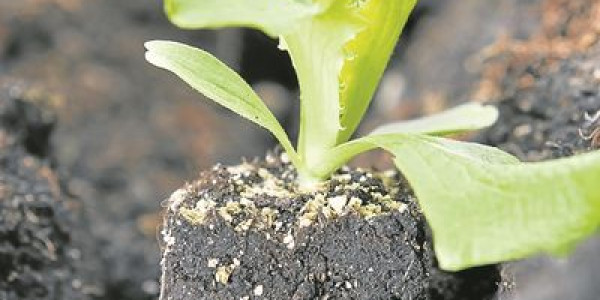BY NEELS BLOM, JULY 01 2013 Agriculture is a major contributor of greenhouse gases, with 15% emissions. Picture: THINKSTOCK THE South African social enterprise Food & Trees for Africa’s crop of choice for the mitigation of anthropogenic climate change is an unlikely member of the bamboo family, but there may be more to this grass species than meets the eye — and to the arguments made in favour of carbon sequestration with which alternative crops are credited. Climate change may not be the only constraint affecting sustainability in agriculture, but adaptation in farming may be highly effective in mitigating anthropogenic global warming now generally accepted to be the consequence of the emission of greenhouse gases, chiefly carbon-rich gases released by combustion. While agriculture is the sector most vulnerable to climate change, it is also a major contributor of greenhouse gases, accounting for about 15% of emissions, or as much as 30% when considering land-use change, including deforestation. However, agriculture can still be part of the solution, says a report on a concept known as climate-smart agriculture. One proposed adaptation is the cultivation of crops that act as carbon sinks by absorbing greenhouse gases from the atmosphere, while simultaneously addressing the social, economic and developmental constraints to sustainability. Food & Trees for Africa launched its Bamboo for Africa programme in 2010. The programme is now internationally accredited through the Verified Carbon Standard as a verified emission reduction programme. The organisation also calls the programme a greening, climate change response offering carbon offsets and which includes corporate social investment, enterprise development and black economic empowerment. The bamboo project — climate smart in that it encompasses what its proponents call a triple win — includes cultivation techniques such as mulching, intercropping, zero tillage, agro-forestry, improved grazing and improved water management. By increasing the soil’s organic content, the wins are greater water-holding capacity, crops that are resilient to climate change and carbon storage. According to the climate smart report, projects of this nature are under way in Burkina Faso, Ethiopia, Kenya, Malawi and Niger, as well as in Yemen, China, Brazil and Mexico. But the critics of carbon sequestration programmes in agriculture say the credits generated by farmers and sold to emitters in developed economies generate a false belief that they have offset their polluting activities. They say also that the idea of leveraging finance for African agriculture is misleading and that they are more likely to threaten farmers’ livelihoods. The Institute for Agriculture and Trade Policy says in a report by Steve Suppan that there is no money for agriculture in Africa from carbon offsets. “The financial structure of climate smart agriculture is built on evaporating carbon markets. Carbon markets are in collapse, and projects will have inadequate finance.” The reports says it will take several years of project implementation before any carbon credits can be sold, and that offset projects will struggle to find investors. The responsibility for pre-financing these projects has so far fallen to governments, with the result that they have become a diversion of public funds that are needed to tackle climate change. Carbon prices have fallen to a low of less than €3 per ton, which is too low to persuade emitters to switch to greener energy. For African farmers the meagre profit thus generated cannot recoup the public finance investment, let alone leverage real funds, critics say. A much-vaunted World Bank pilot project in Kenya, for instance, is likely to generate between $5 and $1 per year per farmer. All that happens is that taxpayers will prop up failing carbon markets for the benefit of speculators. Taylor Scott International
Sector ‘Can Be Part Of Climate Change Solution’

This entry was posted in Investment, investments, Kenya, News, Property, Taylor Scott International, TSI, Uk and tagged agriculture, global-warming, green, investment, investments, javascript, kenya, news, property, solution. Bookmark the permalink.







